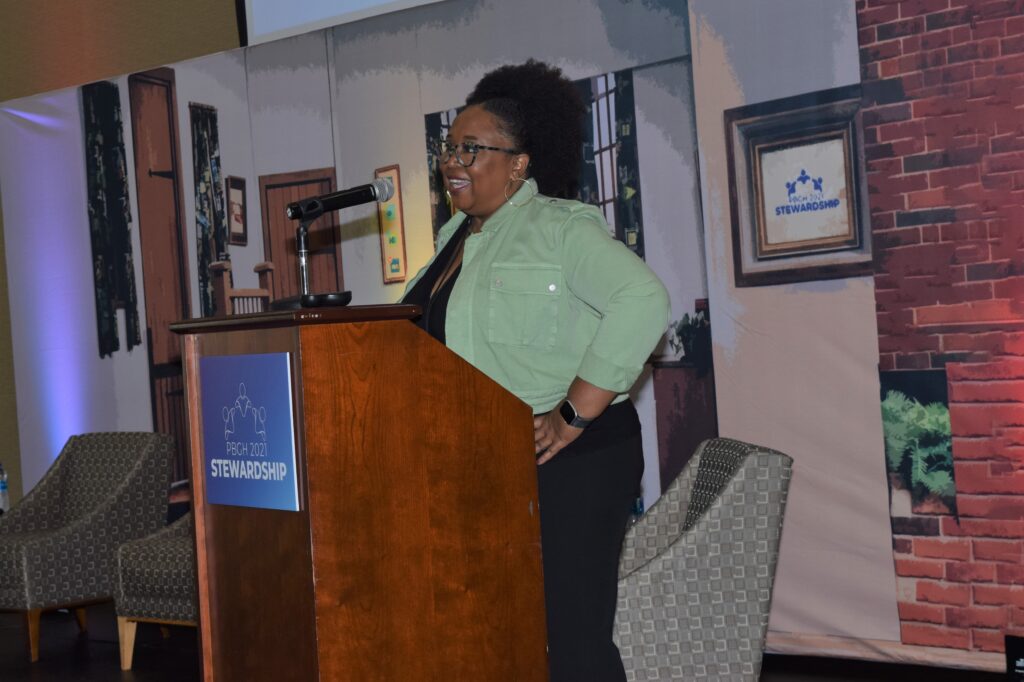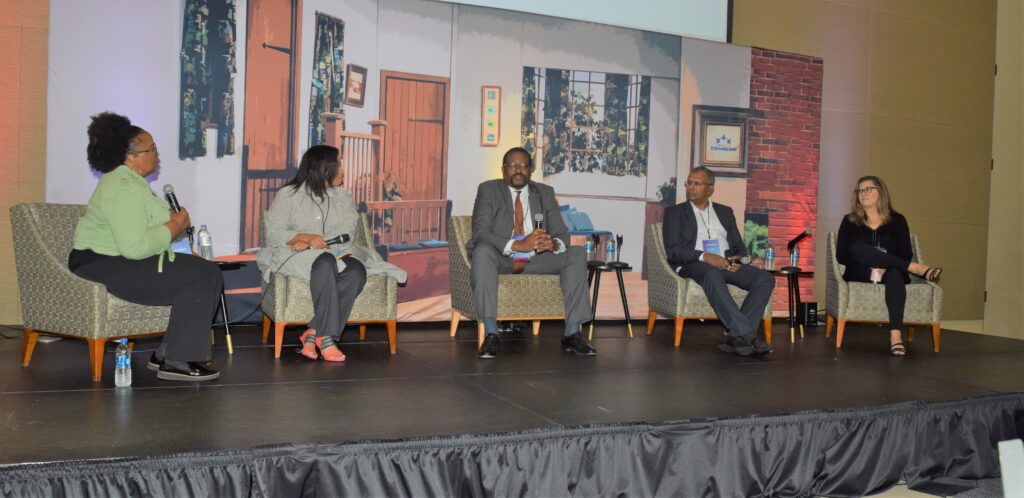Who knows what equity is in the healthcare arena? Who is willing to acknowledge that healthcare inequities exist? Identified as an ongoing issue through decades, the need in building health equity was a hot topic at this year’s Health Care & Benefits Symposium recently presented by the Pittsburgh Business Group on Health (PBGH).
Health equity is not only the ability for all to receive adequate health care. It is also the acknowledgement that people of black and brown skin have higher susceptibility to various illnesses, and their recovery rates are not as favorable as their white-skinned counterparts.

President and Chief Cultural Consultant at Black Women Wise Women LLC, Cheryl Hall-Russell facilitated the discussion regarding Building Health Equity with Intent. This panel included Jessica Brooks, president & CEO of PBGH; Alicia Schisler, chief of external affairs at Adagio Health; William Generett, Jr., senior vice president at the Office of Civic Engagement and External Relations at Duquesne University; and Sanjay Prasad, MD, FACS CEO, at SurgiQuality. They all shared a common interest of seeking better health outcomes for patients, especially those identified as under insured or not insured at all.
With no regard to background or education, the bias based on skin color plays out every day in healthcare settings. People of black and brown skin have encountered poor interactions with medical professionals. Common reports have included being treated like inanimate objects or being talked over rather than being engaged in conversation. Our area is often viewed as the city of premier medical interventions. Therefore, some may not believe these reports. Panel members noted that in terms of access to healthcare, Pittsburgh is statistically the worse place for a black woman to live based of how women of color are treated by healthcare professionals, often being ignored, or not taken seriously.
Panel members, including Ms. Brooks, take the issue of health inequities “very personal.” She recognizes that “not doing anything is another risk” and she does not want inaction to take place. Efforts by all companies/employers represented on the panel have been initiated to squash health inequities in the community.
Over the course of several years, poor outcomes of black patients from an array of surgeries served as the catalyst of a program shared by Dr. Prasad. With no change in sight, a system was created where surgeons were forced to compete for patients, which ultimately solved the disparity issue. In addition, with an astounding number of unnecessary surgeries being scheduled, a peer-to-peer review program was initiated so that only legitimately needed procedures would be performed.
Mr. Generett announced the launching of a medical school at Duquesne University. The school’s goal is to address the recognized disparities. Referencing the lack of primary care physicians willing to become family practitioners for underprivileged and urban areas, the university is initiating a Doctor of Osteopathic medicine program. Being in the heart of the city, several in their workforce – food service, janitorial staff, entry level office roles – meet the demographics of those affected by health inequities. It made sense to take action.
Efforts such as these are the first steps in building health equity for all. As Ms. Schisler shared, “When you feel that you receive great medical care you feel that you are heard.”

Post a Comment